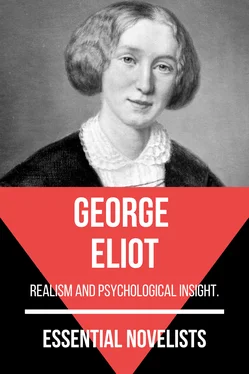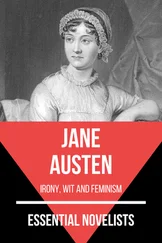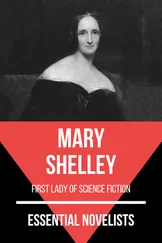––––––––

1ST GENT. AN ANCIENT land in ancient oracles
Is called "law-thirsty": all the struggle there
Was after order and a perfect rule.
Pray, where lie such lands now? . . .
2d Gent. Why, where they lay of old—in human souls.
––––––––

MR. CASAUBON'S BEHAVIOR about settlements was highly satisfactory to Mr. Brooke, and the preliminaries of marriage rolled smoothly along, shortening the weeks of courtship. The betrothed bride must see her future home, and dictate any changes that she would like to have made there. A woman dictates before marriage in order that she may have an appetite for submission afterwards. And certainly, the mistakes that we male and female mortals make when we have our own way might fairly raise some wonder that we are so fond of it.
On a gray but dry November morning Dorothea drove to Lowick in company with her uncle and Celia. Mr. Casaubon's home was the manor-house. Close by, visible from some parts of the garden, was the little church, with the old parsonage opposite. In the beginning of his career, Mr. Casaubon had only held the living, but the death of his brother had put him in possession of the manor also. It had a small park, with a fine old oak here and there, and an avenue of limes towards the southwest front, with a sunk fence between park and pleasure-ground, so that from the drawing-room windows the glance swept uninterruptedly along a slope of greensward till the limes ended in a level of corn and pastures, which often seemed to melt into a lake under the setting sun. This was the happy side of the house, for the south and east looked rather melancholy even under the brightest morning. The grounds here were more confined, the flower-beds showed no very careful tendance, and large clumps of trees, chiefly of sombre yews, had risen high, not ten yards from the windows. The building, of greenish stone, was in the old English style, not ugly, but small-windowed and melancholy-looking: the sort of house that must have children, many flowers, open windows, and little vistas of bright things, to make it seem a joyous home. In this latter end of autumn, with a sparse remnant of yellow leaves falling slowly athwart the dark evergreens in a stillness without sunshine, the house too had an air of autumnal decline, and Mr. Casaubon, when he presented himself, had no bloom that could be thrown into relief by that background.
"Oh dear!" Celia said to herself, "I am sure Freshitt Hall would have been pleasanter than this." She thought of the white freestone, the pillared portico, and the terrace full of flowers, Sir James smiling above them like a prince issuing from his enchantment in a rose-bush, with a handkerchief swiftly metamorphosed from the most delicately odorous petals—Sir James, who talked so agreeably, always about things which had common-sense in them, and not about learning! Celia had those light young feminine tastes which grave and weatherworn gentlemen sometimes prefer in a wife; but happily Mr. Casaubon's bias had been different, for he would have had no chance with Celia.
Dorothea, on the contrary, found the house and grounds all that she could wish: the dark book-shelves in the long library, the carpets and curtains with colors subdued by time, the curious old maps and bird's-eye views on the walls of the corridor, with here and there an old vase below, had no oppression for her, and seemed more cheerful than the casts and pictures at the Grange, which her uncle had long ago brought home from his travels—they being probably among the ideas he had taken in at one time. To poor Dorothea these severe classical nudities and smirking Renaissance-Correggiosities were painfully inexplicable, staring into the midst of her Puritanic conceptions: she had never been taught how she could bring them into any sort of relevance with her life. But the owners of Lowick apparently had not been travellers, and Mr. Casaubon's studies of the past were not carried on by means of such aids.
Dorothea walked about the house with delightful emotion. Everything seemed hallowed to her: this was to be the home of her wifehood, and she looked up with eyes full of confidence to Mr. Casaubon when he drew her attention specially to some actual arrangement and asked her if she would like an alteration. All appeals to her taste she met gratefully, but saw nothing to alter. His efforts at exact courtesy and formal tenderness had no defect for her. She filled up all blanks with unmanifested perfections, interpreting him as she interpreted the works of Providence, and accounting for seeming discords by her own deafness to the higher harmonies. And there are many blanks left in the weeks of courtship which a loving faith fills with happy assurance.
"Now, my dear Dorothea, I wish you to favor me by pointing out which room you would like to have as your boudoir," said Mr. Casaubon, showing that his views of the womanly nature were sufficiently large to include that requirement.
"It is very kind of you to think of that," said Dorothea, "but I assure you I would rather have all those matters decided for me. I shall be much happier to take everything as it is—just as you have been used to have it, or as you will yourself choose it to be. I have no motive for wishing anything else."
"Oh, Dodo," said Celia, "will you not have the bow-windowed room up-stairs?"
Mr. Casaubon led the way thither. The bow-window looked down the avenue of limes; the furniture was all of a faded blue, and there were miniatures of ladies and gentlemen with powdered hair hanging in a group. A piece of tapestry over a door also showed a blue-green world with a pale stag in it. The chairs and tables were thin-legged and easy to upset. It was a room where one might fancy the ghost of a tight-laced lady revisiting the scene of her embroidery. A light bookcase contained duodecimo volumes of polite literature in calf, completing the furniture.
"Yes," said Mr. Brooke, "this would be a pretty room with some new hangings, sofas, and that sort of thing. A little bare now."
"No, uncle," said Dorothea, eagerly. "Pray do not speak of altering anything. There are so many other things in the world that want altering—I like to take these things as they are. And you like them as they are, don't you?" she added, looking at Mr. Casaubon. "Perhaps this was your mother's room when she was young."
"It was," he said, with his slow bend of the head.
"This is your mother," said Dorothea, who had turned to examine the group of miniatures. "It is like the tiny one you brought me; only, I should think, a better portrait. And this one opposite, who is this?"
"Her elder sister. They were, like you and your sister, the only two children of their parents, who hang above them, you see."
"The sister is pretty," said Celia, implying that she thought less favorably of Mr. Casaubon's mother. It was a new opening to Celia's imagination, that he came of a family who had all been young in their time—the ladies wearing necklaces.
"It is a peculiar face," said Dorothea, looking closely. "Those deep gray eyes rather near together—and the delicate irregular nose with a sort of ripple in it—and all the powdered curls hanging backward. Altogether it seems to me peculiar rather than pretty. There is not even a family likeness between her and your mother."
"No. And they were not alike in their lot."
"You did not mention her to me," said Dorothea.
"My aunt made an unfortunate marriage. I never saw her."
Читать дальше













